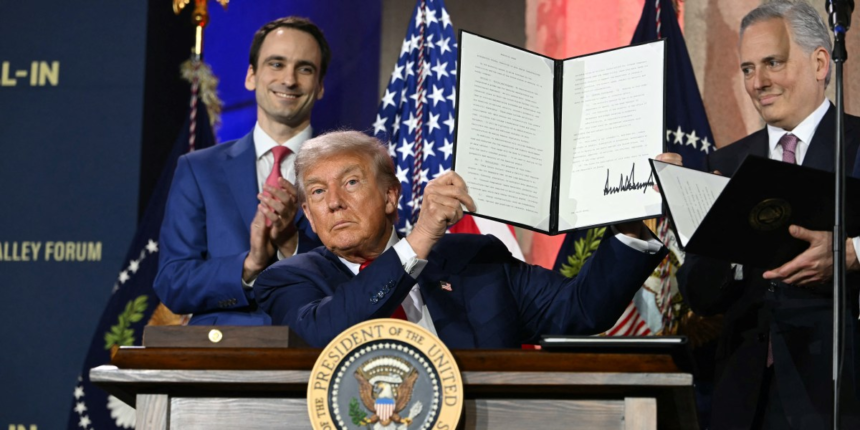Hello and welcome to Eye on AI! In this edition:
Sacks—along with senior White House AI policy advisor Sriram Krishnan and Office of Science and Technology Policy director Michael Kratsios, both of whom were also present at the event—has been front and center pushing Silicon Valley’s pro-speed, pro-scale ideology, advocating for rapid deployment and minimal regulation of AI.
For the “accelerationists”—those who believe the rapid development and deployment of artificial intelligence should be pursued as quickly as possible—innovation, scale, and speed are everything. Over-caution and regulation? Ill-conceived barriers that will actually cause more harm than good. They argue that faster progress will unlock massive economic growth, scientific breakthroughs, and national advantage. And if superintelligence is inevitable, they say, the U.S. had better get there first—before rivals like China’s authoritarian regime.
Whether these groups can claw their way back to the table is still an open question. The mainstream ethics folks—with roots in civil rights, privacy, and democratic governance—may still have influence at the margins, or through international efforts. The existential risk researchers, once tightly linked to labs like OpenAI and Anthropic, still hold sway in academic and philanthropic circles. But in today’s environment—where speed, scale, and geopolitical muscle set the tone—both camps face an uphill climb. If they’re going to make a comeback, I get the feeling it won’t be through philosophical arguments. More likely, it would be because something goes wrong—and the public pushes back.
With that, here’s the rest of the AI news.








